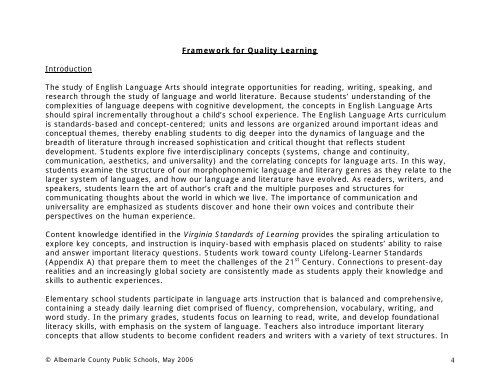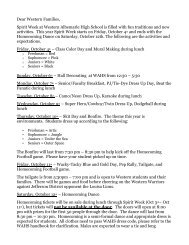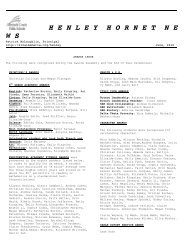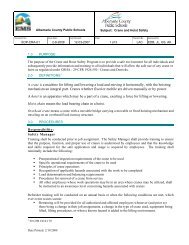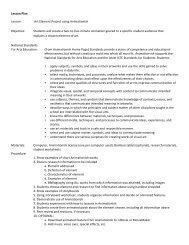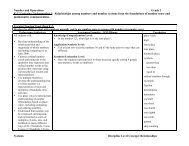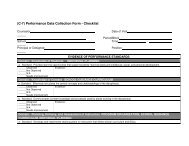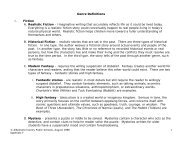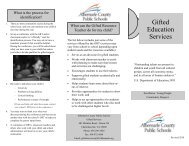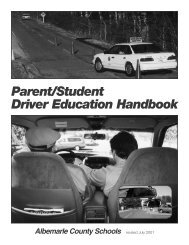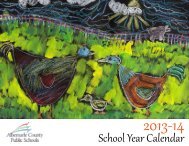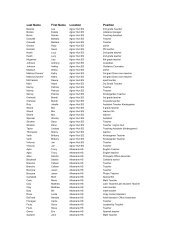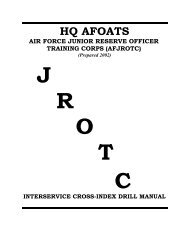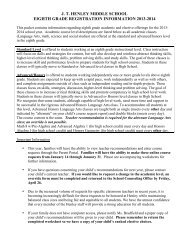Language Arts/English Curriculum Frameworks - Albemarle County ...
Language Arts/English Curriculum Frameworks - Albemarle County ...
Language Arts/English Curriculum Frameworks - Albemarle County ...
Create successful ePaper yourself
Turn your PDF publications into a flip-book with our unique Google optimized e-Paper software.
Framework for Quality Learning<br />
Introduction<br />
The study of <strong>English</strong> <strong>Language</strong> <strong>Arts</strong> should integrate opportunities for reading, writing, speaking, and<br />
research through the study of language and world literature. Because students’ understanding of the<br />
complexities of language deepens with cognitive development, the concepts in <strong>English</strong> <strong>Language</strong> <strong>Arts</strong><br />
should spiral incrementally throughout a child’s school experience. The <strong>English</strong> <strong>Language</strong> <strong>Arts</strong> curriculum<br />
is standards-based and concept-centered; units and lessons are organized around important ideas and<br />
conceptual themes, thereby enabling students to dig deeper into the dynamics of language and the<br />
breadth of literature through increased sophistication and critical thought that reflects student<br />
development. Students explore five interdisciplinary concepts (systems, change and continuity,<br />
communication, aesthetics, and universality) and the correlating concepts for language arts. In this way,<br />
students examine the structure of our morphophonemic language and literary genres as they relate to the<br />
larger system of languages, and how our language and literature have evolved. As readers, writers, and<br />
speakers, students learn the art of author’s craft and the multiple purposes and structures for<br />
communicating thoughts about the world in which we live. The importance of communication and<br />
universality are emphasized as students discover and hone their own voices and contribute their<br />
perspectives on the human experience.<br />
Content knowledge identified in the Virginia Standards of Learning provides the spiraling articulation to<br />
explore key concepts, and instruction is inquiry-based with emphasis placed on students’ ability to raise<br />
and answer important literacy questions. Students work toward county Lifelong-Learner Standards<br />
(Appendix A) that prepare them to meet the challenges of the 21 st Century. Connections to present-day<br />
realities and an increasingly global society are consistently made as students apply their knowledge and<br />
skills to authentic experiences.<br />
Elementary school students participate in language arts instruction that is balanced and comprehensive,<br />
containing a steady daily learning diet comprised of fluency, comprehension, vocabulary, writing, and<br />
word study. In the primary grades, students focus on learning to read, write, and develop foundational<br />
literacy skills, with emphasis on the system of language. Teachers also introduce important literary<br />
concepts that allow students to become confident readers and writers with a variety of text structures. In<br />
© <strong>Albemarle</strong> <strong>County</strong> Public Schools, May 2006 4


